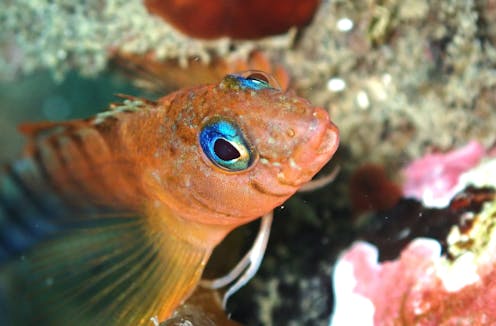The AFP is today revealing common grooming tactics used by child sex predators to highlight how quickly children can be coerced into producing sexual content.
The AFP-led Australian Centre to Counter Child Exploitation (ACCCE) is providing examples of common conversations between offenders and children.
The ACCCE has constructed the conversations based on real interactions recorded and disrupted by investigators.
In some conversations, predators have managed to coerce a victim into getting naked in front of a camera following just a few messages after initial contact.
As children return to school, the AFP is releasing material and information to encourage parents to get to know who their children are communicating with online.
AFP Commander for the ACCCE Hilda Sirec said the most common tactics predators exploited to gain the trust of unsuspecting victims were: fear, preying on insecurities, feigning common interests, in-game chats and bribes, flattery and fake modelling offers.
“Child sex predators are highly skilled at adopting fake identities and personas online,” Commander Sirec said.
“It is frightening how quickly predators have been able to coerce a child victim into removing their clothes or self-producing child abuse material.
“We want all parents and carers to be aware that this is happening on social media and gaming platforms, and how to take steps to protect their children.”
“Fear is one of the most common tactics exploited by offenders and is commonly associated with sexploitation,” Commander Sirec said.
“As the constructed conversations show, predators seek to exploit the smallest opening from a victim to instill in them the fear that their behavior, even if it’s relatively benign, will get exposed to their family and friends.
“Once a predator has even a slightly compromising picture or video from the victim, they can use that to blackmail them into providing even more explicit material. This is a crime known as sexual extortion or sextortion.
Another tactic seen by investigators is fake modelling offers. This is when a predator will pretend to represent a modelling agency and attempt to trick a child into sending “naughty” pictures.
The released example shows it can take just three messages from an offender before a victim could be willing to provide intimate photos.
Other tactics reveal the familiarity predators have with the language used by children and their ability to target weaknesses.
“These conversations represent a realistic version of online grooming that our investigators unfortunately encounter far too often,” Commander Sirec said.
“Now is the perfect time for parents to start a conversation about online safety and help their children protect themselves.”
To ensure that as many Australian parents as possible understand these dangers and have the tools to protect their children, the AFP has recently updated key resources available through the ACCCE and ThinkUKnow by translating them into more than 100 languages.
The translation program is part of a wider effort to build relationships with culturally and linguistically diverse (CALD) communities, which is a priority for the AFP.
The AFP’s main gateway to information on fighting and preventing child exploitation is the ACCCE website and it can be translated into 108 languages.
The ACCCE’s recent successful launch of the Stop the Stigma campaign was augmented with the videos captioned in various languages. The videos are available here on the ACCCE website.
Other support brochures for families and individuals are in the process of being translated and all new projects will include a careful consideration of language options.
The ThinkUKnow program, which educates Australian parents, carers and teachers about keeping children safe online, is regularly delivered to CALD audiences through the AFP’s Community Liaison Teams.
ThinkUKnow has also designed its factsheets for CALD communities and translated them into Arabic, Chinese, Farsi, Turkish, Urdu and Vietnamese.
During the past financial year, ThinkUKnow delivered presentations to more than 198,000 students and about 1460 parents, carers and educators.
The ThinkUKnow Corporate Report 2020-21 details the achievements of the program over the past financial year, including presentations delivered highlighting the demand and need for online child safety education throughout the pandemic.
How to report online child abuse
- If you believe a child is in imminent danger, call police Triple Zero (000) or visit your local police station.
- If your child is experiencing issues online, it is essential to collect evidence – taking screenshots or photos of the content. Once you have collected your evidence, block and report on the app, site or platform where the issue occurred.
Online child sexual exploitation can be reported to the ACCCE at https://www.accce.gov.au/report or to call Crime stoppers on 1800 333 000.
If you or someone you know are impacted by child sexual abuse and online exploitation there are support services available, visit to learn more www.accce.gov.au/support
Advice and support for parents and carers about how they can help protection children online can be found at ThinkUKnow, an AFP-led education program designed to prevent online child sexual exploitation: www.thinkuknow.org.au
Research conducted by the ACCCE in 2020 revealed only about half of parents talked to their children about online safety.
Fifty per cent of parents don’t know what to do to keep their kids safe online. Just 3 per cent of parents are concerned about online grooming. And sadly, most believe online child sexual exploitation is too repulsive to even think about.
A podcast launched last year by the ACCCE ‘Closing The Net’ is working to change that, showcasing that knowledge is power and that our only chance to help prevent this issue is if we bring a ‘whole-of-community’ response.
The podcast series offers valuable tips and advice on how to keep kids safe online.








